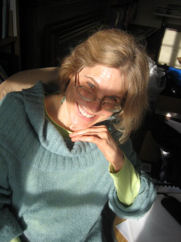It’s Dry Dock, as I might have mentioned. That means no cars cross the water for three weeks while the ferry is off for annual service. Any coming or going from the island is on a walk-on temporary commuter boat.
Dry Dock has an odd effect, though Brits of a certain age would recognize some of it. We aren’t exactly under siege, but we are suddenly left to fend for ourselves, to haul whatever we need, and to talk to our neighbours, because there is no one else around. Today we didn’t even have electricity. That was because of some bother on the res when a telephone pole got knocked over. It had nothing to do with the ferry being out of service, but what with the day’s constant rain, it added to the feeling of being cut off from the rest of the world.
Before the rain and the no electricity, my friend G declared we had to have a booze cruise on the ferry, because in a few days I am going to be flying back to England and I need to have every possible small island experience first. G swore the Dry Dock Booze Cruise was a tradition, though no one else had ever heard of it. Clouds were gathering and the sun deserted and G wavered, but though the locals have done nothing but complain, this is the sunniest summer I have had in 30 years and I really wanted to celebrate it. Never mind that our cruise would be on the island hopper commuter ferry.
Besides, I specially like picnics, because they make me feel European, as in lunch at 125 miles per hour on the Eurostar from London to Paris. When I went after 9/11 I wanted to be sure that the Swiss Army knife I’ve carried for 35 years to open wine, cut saucissons, and smear cheese on crusty bread wasn’t going to be confiscated, so I came prepared in case I had to post (mail) the knife back home. With some difficulty I requested pre security screening so they could examine my potential threat. Anyone who has witnessed a Gallic shrug will probably agree that you can’t hijack a 25 voitures train with a three inch blade and a corkscrew, and why would you bother if you could have camembert and claret instead. If you go, the gendarmes will be just fine with your weapons of mass cheese destruction.
Our local ferry is not quite so liberal. Even though neither G nor I would be driving on or off the island the open container law means no legal alcohol on public transport. G put her cocktail in a travel coffee mug. Mine was in a sports water bottle.
In the US refrigerators and larders are usually bigger and more amply stocked than their UK counterparts, but in both countries I pride myself on being able to produce a meal or a party whatever’s on hand. This time I had tinned olives in the cupboard which I stuffed with feta cheese from the fridge. I toasted thinly sliced bread and topped it with smoked salmon, onions and capers (I did mention that the Survivalists had left me with a lifetime supply of capers), and just for good measure I melted parmesan cheese onto some Wheat Thins (can’t think of a Britsh equivalent – it’s just a really square cracker) and topped them with dried chillis . G was not impressed with my bicycle basket where I arranged my hors d’oeuvres covered with a tea towel, but I thought it did very nicely for a picnic.
We boarded with our disguised drinks and my bike basket of hors d’oeuvres. We told the captain that we couldn’t afford the whale watching boat so were cruising on his ship instead and he took our picture. The ferry is seven minutes each way, but we got a bit extra because there was a minor breakdown on the mainland side and no one was allowed on. We sat on deck, eating and drinking, the only passengers on board, and toasted the bored commuters waiting on the dock below.
Here’s the picture of our no-whale, booze-camouflaged-cruise, the Duchess’s farewell ferry journey with G, native Alaskan, judge’s daughter and firefighter’s wife. This summer, for the first time, the Duchess has affected a pink baseball cap. She feels her British friends might not approve, although she thinks it is very fetching.






